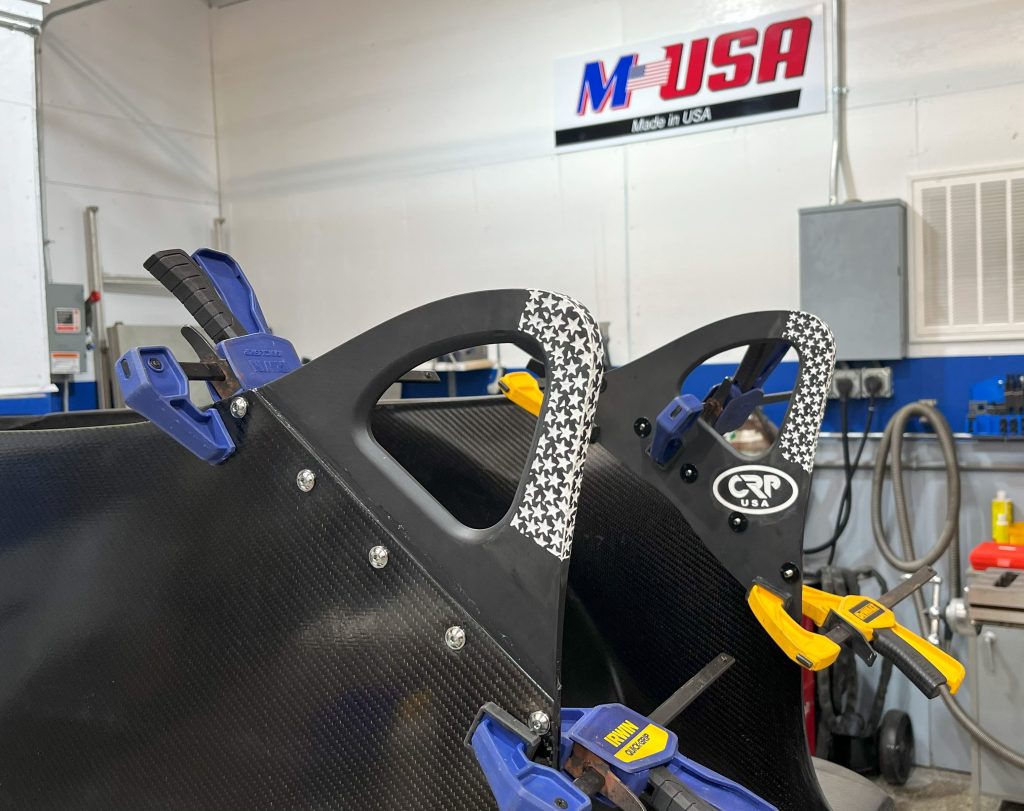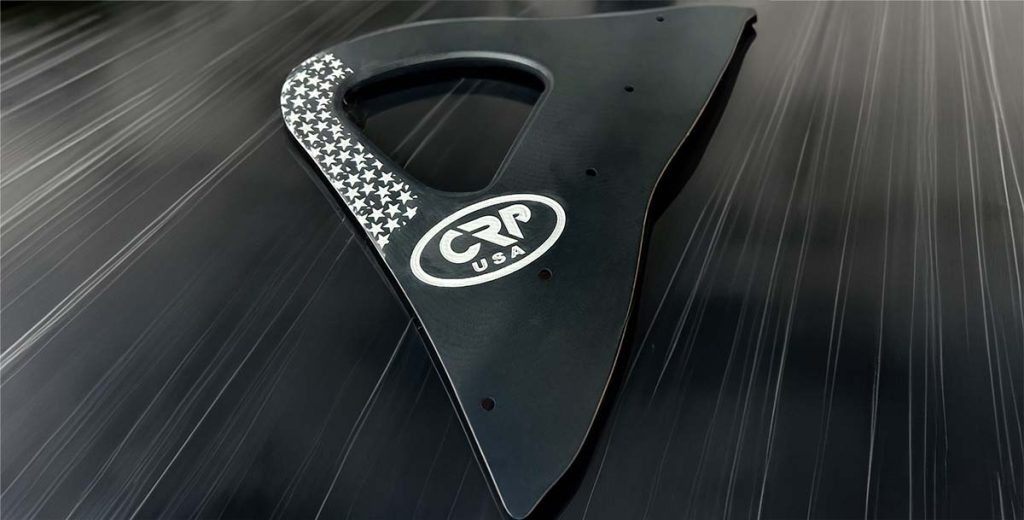US-based 3D printing company CRP USA has partnered with the USA Bobsled/Skeleton team (USABS) to develop a novel bobsled design for the 2026 Olympic Winter Games.
The partnership between CRP USA and USABS originated through a connection with a local carbon fiber products company. In this collaboration, CRP USA assumed the role of supplying USABS with 3D printed functional parts designed specifically for racing bobsleds. Crucial elements, including push handles, hand grips, and seats, were developed using CRP’s Windform family of high-performance materials. These components play a pivotal role in optimizing the performance of bobsleds and ensuring the safety of athletes.
“The big advantage of 3D printing for the USA Bobsled/Skeleton team is that no mold’s need to be made,” said Marc van den Berg, Technology and Equipment Lead for USABS. “So a huge amount of time is saved and the costs remain much lower. Not to mention a much faster delivery of the parts because no mold is required. The 3D process also has many advantages because more complex parts can be made.”

Improved precision on ice
One of the primary challenges faced by the USABS team was the need to comply with strict regulations governing the shapes and dimensions of bobsled components. van den Berg emphasized that meeting these regulations while simultaneously addressing stress resistance was important. The forces exerted on a bobsled during the start of a race, coupled with the potential for crashes, demanded flexible and robust materials to prevent part breakage.
Carbon fiber-filled composites from CRP Technology dubbed Windform XT 2.0 and Windform SP, emerged as optimal materials for the 3D printed bobsled parts. The partnership allowed for the rapid production of push handles, hand grips, and seats without the need for expensive molds, enabling the USABS team to conduct multiple tests, iterate designs, and make necessary modifications swiftly.
In the evaluation of these specific components, CRP USA conducted a thorough assessment that ultimately pinpointed Windform SP as the most suitable construction material. This determination was based on its noteworthy characteristics, including remarkable resistance to shock, vibrations, and deformation. Some of the key properties highlighting its suitability include a density of 1.106 g/cc at 68 °F and 20 °C, a melting point of 380 °F and 193.3 °C, a Heat Deflection Temperature (HDT) of 1.82 Mpa at 368 °F and 186.5 °C, and a tensile strength of 11000 psi and 76.10 Mpa. Additionally, Windform SP boasts an elongation at break of 11.38%, underscoring its versatility and strength.
“The athletes have waited a long time to get back on the ice and begin competing,” says Curt Tomesevicz, Director of Sport Performance for USABS. “So, it was very rewarding to see so many great results. It is the reward of a lot of hard work in the off-season.”
Expressing satisfaction with the collaboration, Marc van den Berg highlighted the efficiency of the 3D printing process. The speed of execution and delivery by CRP USA allowed the team to thoroughly test the components for stress resistance and ergonomics, ultimately achieving optimal results.
The 3D printed bobsled parts debuted at the IBSF North American Cup (NAC) in November 2023, marking a significant moment in winter sports, says the company.

3D printing playing a significant role in the sports industry
Bauer Hockey collaborated with 3D printer manufacturer EOS to develop personalized 3D printed hockey helmets through the MyBauer custom equipment program. Leveraging EOS’s patented Digital Foam technology, players’ head scans generate digital files, and Selective Laser Sintering (SLS) produces custom helmet inserts. This partnership aligns with Bauer’s pursuit of mass customization, using Digital Foam to enhance safety, comfort, and breathability in lightweight helmets.
Australian sailing team secured a gold medal in sailing at the Tokyo Olympics, where a 3D printed rudder blade suspension played a pivotal role. Fehrmann Alloys, an aluminum specialist, employed its AlMgty alloy to create the suspension. AlMgty, a high-performance aluminum alloy designed for 3D printing and casting, was chosen for its strength and corrosion resistance. The suspension, successfully tested for durability in various sea conditions, contributed to the team’s success in the 470 class at the Tokyo 2020 Olympics.
Read all the 3D Printing Industry coverage from Formnext 2023.
What does the future of 3D printing for the next ten years hold?
What engineering challenges will need to be tackled in the additive manufacturing sector in the coming decade?
To stay up to date with the latest 3D printing news, don’t forget to subscribe to the 3D Printing Industry newsletter or follow us on Twitter, or like our page on Facebook.
While you’re here, why not subscribe to our Youtube channel? Featuring discussion, debriefs, video shorts, and webinar replays.
Are you looking for a job in the additive manufacturing industry? Visit 3D Printing Jobs for a selection of roles in the industry.
Featured image shows USABS team with Brian Shimer, Head coach; Curt Tomasevicz, High Performance Director; Marc van den Berg, Technology and Equipment Lead at CRP USA’s headquarters in the day of the wind tunnel test. Photo via USABS.



